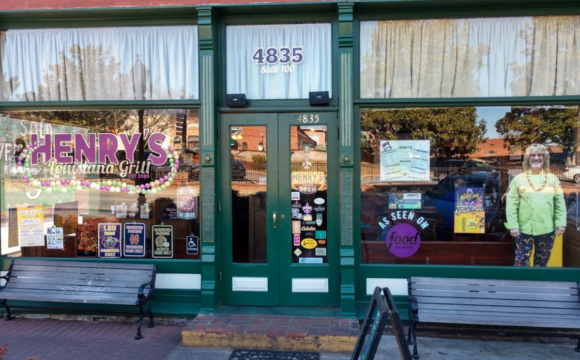A wave of litigation over business-interruption losses caused by COVID-19 shutdown orders has started splashing into the appellate courts.
Appeals of trial court decisions in at least 11 lawsuits have been filed so far, all but one of them by policyholders whose claims were denied, according to a database maintained by Garbriel K. Gillett of Jenner & Block in Chicago. Gillett is appellate counsel for the Restaurant Law Center, which has been advocating on behalf of restaurant owners whose business-interruption claims were denied.
As of Wednesday, insurers had won 83 out of 105 business interruptions lawsuits that were decided by motions to dismiss or summary judgment, a litigation tracker maintained by the University of Pennsylvania’s Carey Law School shows. Businesses with policies that did not have a virus exclusion fared slightly better, surviving insurer motions in 12 out of 35 cases.
Only a small fraction of the 1,422 business-interruption lawsuits filed have been decided, but the initial rulings display the hurdle that policyholders must overcome. In many of the cases, trial courts held that business losses are not covered unless there is tangible physical damage to the property.
An Oct. 6 ruling by U.S. District Court Judge Thomas W. Thrash Jr. in a lawsuit filed by the owners of Henry’s Louisiana Grill in Acworth, Ga. against Allied Insurance Co. was typical. The judge said a March 14 executive order issued by Georgia Gov. Brian Kemp declaring a public health emergency did not cause any physical damage to the restaurant.
“Every physical element of the dining rooms—the floors, the ceilings, the plumbing, the HVAC, the tables, the chairs—underwent no physical change as a result of the order,” Thrash wrote. “The only possible change was an increased public and private perception of the existing threat, which cannot be deemed a physical change that rendered the property unsatisfactory.”
Henry’s appealed the decision to the 11th Circuit Court of Appeals on Nov. 4. The Restaurant Law Group, which represents restaurant owners in conjunction with the National Restaurant Association, filed an amicus brief on Dec. 21.
Attorney Gabriel K. Gillett in Chicago says in the brief that courts generally do not interpret contract language to contain “surplusage,” meaning words that have the same meaning. He said that Henry’s policy covered both “physical damage” and “physical loss.” While the governor’s executive order may have caused no damage, it definitely caused a physical loss by rendering the restaurant’s dining room unusable.
“Black letter contract interpretation requires that the terms—separated by the disjunctive “or”—be given distinct meanings,” the brief states.
In its appeal, Henry’s asks the 11th Circuit to send a certified question to the Georgia Supreme Court on whether physical damage means the same thing as physical loss.
Many of the judges who found in favor of claimants pointed out that the policies in question covered both physical damage and loss. Superior Court Judge Orlando F. Hudson Jr. said that Cincinnati Insurance Co. was “conflating” the two terms when it denied coverage business-interruption losses suffered by North State Deli and 15 other restaurants in the Raleigh-Durham area.
Cincinnati Insurance appealed the ruling on Nov. 6.
The other cases that were appealed are:
- Gavrilides Management Co. LLC v. Michigan Insurance Co., 354418, to the Michigan Court of Appeals.
- Rose’s 1 LLC v. Erie Insurance Exchange, 2020 CA 002424 B, to the District of Columbia Court of Appeals.
- 10e LLC v. Travelers Indemnity Co. of Connecticut, 20-56206, to the 9th Circuit Court of Appeals.
- Plan Check Downtown III LLC v. AmGuard Insurance Col, 20-56020, to the 9th Circuit.
- Mudpie Inc. v. Travelers Casualty Insurance Co. of America, 20-16868, to the 9th Circuit.
- Chattanooga Professional Baseball v. National Casualty Co. et al., 20-17422, to the 9th Circuit.
- Mark’s Engine Co. No. 28 Restaurant v. Travelers Indemnity Co. of America, 20-56031, to the 9th Circuit.
- Oral Surgeons v. Cincinnati Insurance Co., 20-3211, to the 8th Circuit.
Was this article valuable?
Here are more articles you may enjoy.


 UK Floods Raise Specter of ‘Mortgage Prisoners’ Across Banks
UK Floods Raise Specter of ‘Mortgage Prisoners’ Across Banks  Red Flags Adjusters Should Look for in Truck Accident Claims Investigations
Red Flags Adjusters Should Look for in Truck Accident Claims Investigations  Tesla’s Austin Robotaxis Report 14 Crashes in First Eight Months
Tesla’s Austin Robotaxis Report 14 Crashes in First Eight Months  Moody’s: LA Wildfires, US Catastrophes Drove Bulk of Global Insured Losses in 2025
Moody’s: LA Wildfires, US Catastrophes Drove Bulk of Global Insured Losses in 2025 